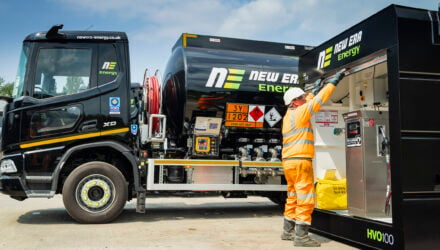EM Rogers Transport, a Northampton-based haulage firm, successfully appealed a £30,000 stowaway fine imposed by the Home Office after six illegal immigrants were found hidden in one of its lorries. The company and the driver initially faced a total penalty of £66,000, with the driver alone being fined £36,000. This incident occurred when the stowaways broke into the vehicle while it was parked about eight hours from Calais, on its way to the UK.
EM Rogers, MD, argued that despite following security protocols, including measures beyond the standard requirements, they were victims of organised crime targeting lorries in the area. Haulage director Ed Rogers explained that their drivers operate in high-risk regions where attempts by stowaways to board vehicles are a daily challenge, likening it to having “a robber stood outside [the] house every day trying to break in.” The company sought legal advice to challenge the fine, which they considered unjust, as they felt they had taken all reasonable steps to secure the vehicle.
The appeal led to a Home Office review, which concluded that the company had indeed complied with regulations. As a result, the £30,000 fine was cancelled entirely, though no detailed explanation was provided by the Home Office.
Ed Rogers expressed relief at the outcome but emphasised that the legal process had been both costly and stressful for the company and the driver.
He also criticised previous comments from the Home Office, which had suggested that the firm had a long-standing issue with such penalties, highlighting that the nature of their business and the number of crossings inevitably expose them to more risks.
“It’s pretty poor for Border Force to say that,” he said.
“Our drivers have been doing this for 30 years, therefore we are going to have had a history. We do thousands of crossings a year so there will be more opportunities for someone to break into one of our trailers.
“We are not doing this job [logistics] to do anything untoward.”
The company continues to emphasise the importance of vigilance and documentation, advising its drivers to meticulously follow security checks and ensure they hand over all necessary paperwork to Border Force during inspections. They remain proactive in their approach to combating these ongoing challenges in cross-Channel transport.
This case highlights the ongoing difficulties faced by UK haulage firms operating in regions affected by illegal immigration and the complexities surrounding the enforcement of stowaway penalties under the Clandestine Entrant Civil Penalty Scheme.









